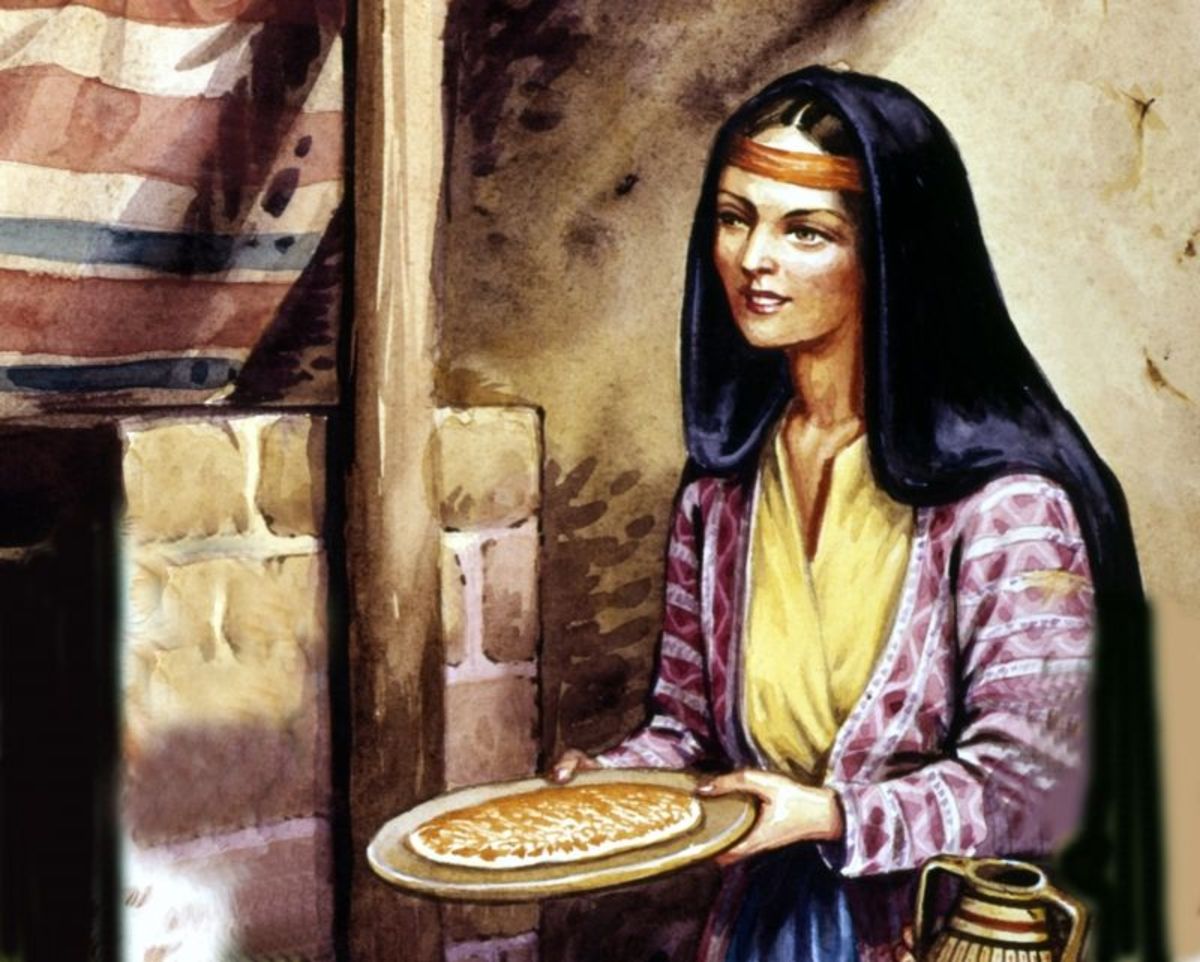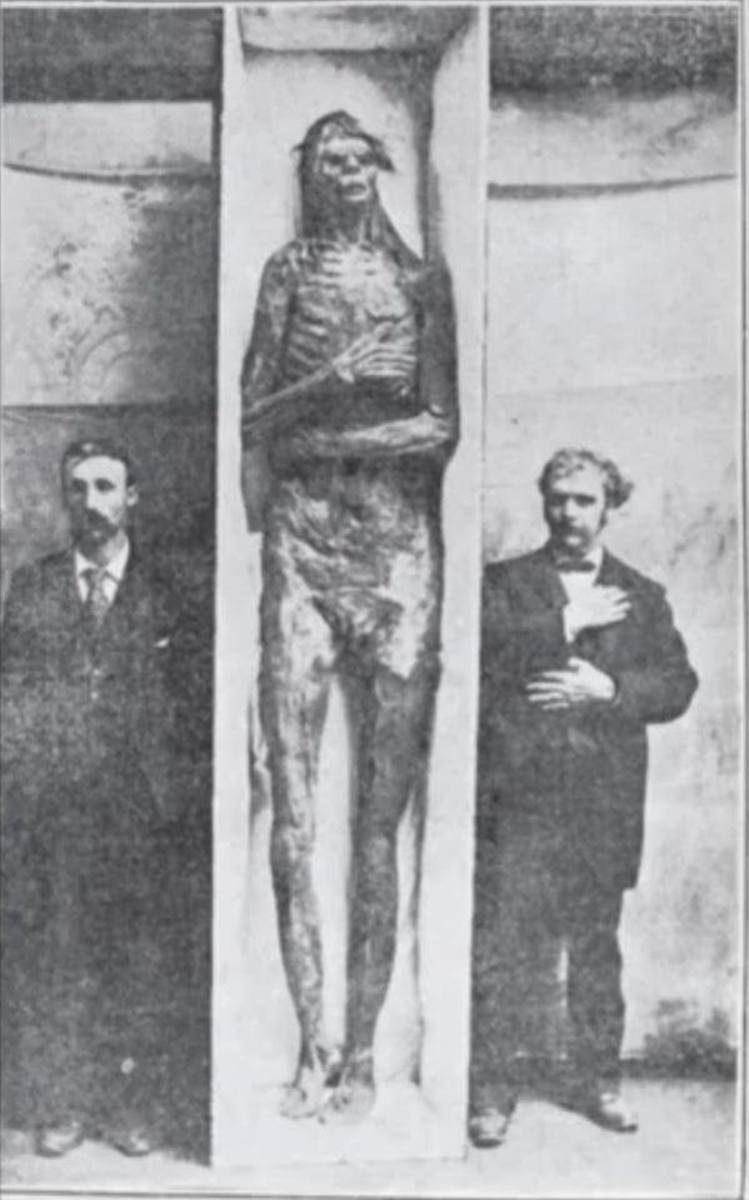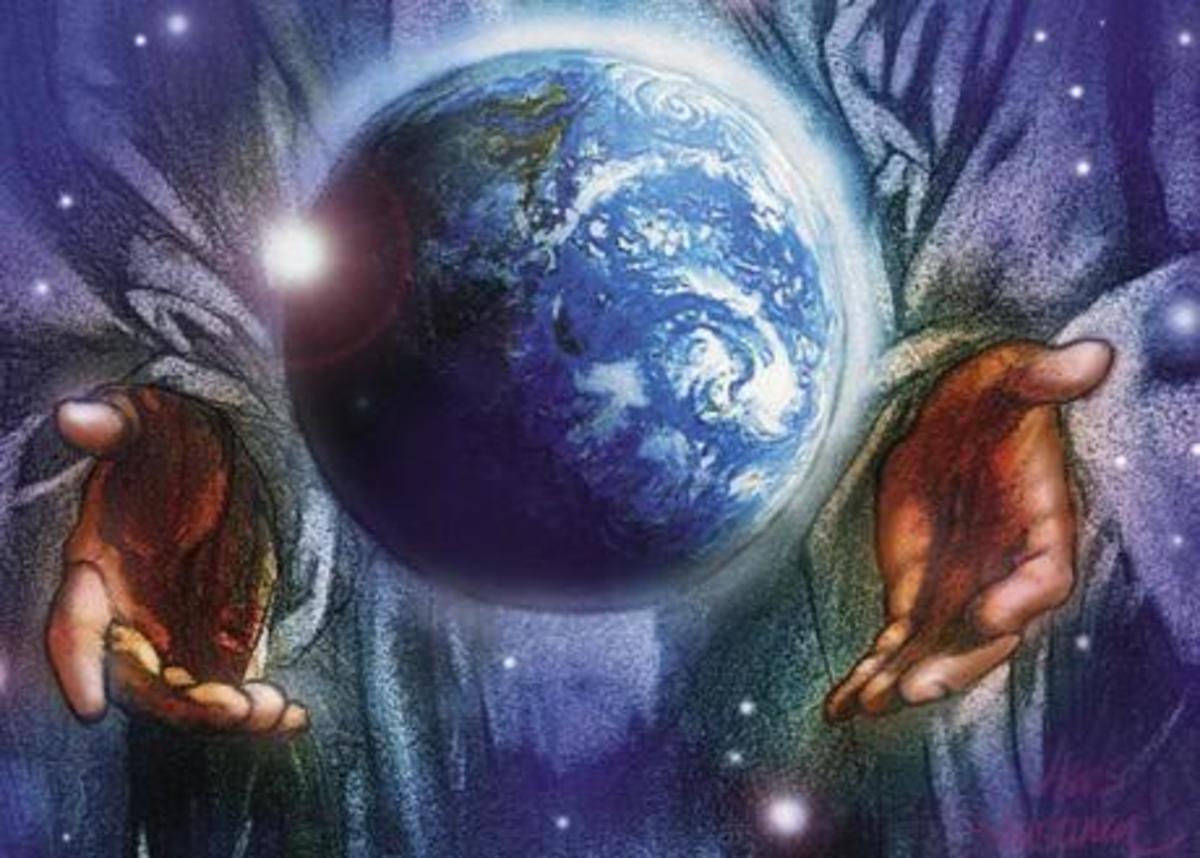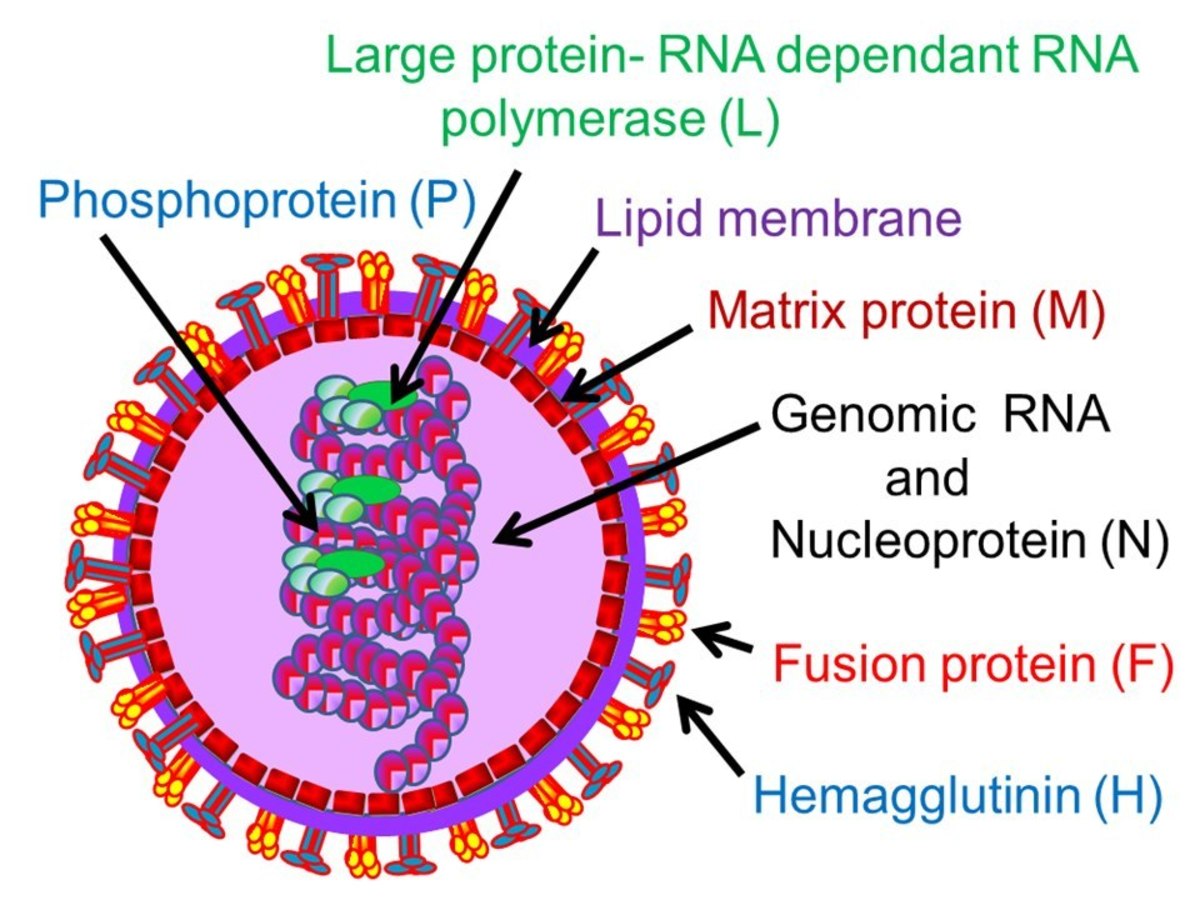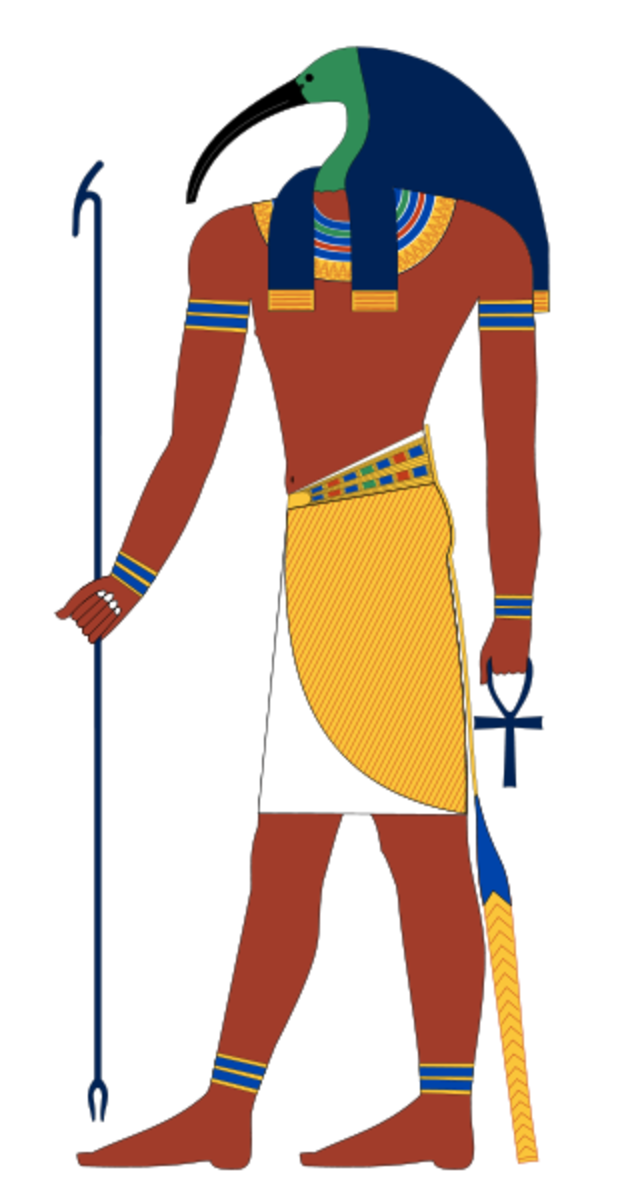The Epic of Gilgamesh: Similarities, Differencies With Bible's Account Of Flood

Who Was Gilgamesh?
“Scholars have attempted, without real success,” says Collier’s Encyclopedia, “to identify Nimrod with a number of ancient kings, heroes, or deities, among them Merodach (Marduk), an Assyrian-Babylonian god; Gilgamesh, a Babylonian hero noted as a hunter; and Orion, a hunter in Classical mythology.” So a German reference work admits that in reality “we know nothing more about him than what is offered by the Bible account.
Gilgamesh is thought to have been an early ruler of the town of Uruk (called Erech at Genesis 10:10). A Sumerian king list assigns him to the first dynasty of Uruk. One dictionary says of this individual: “A cycle of Sumerian mythical-epic poetry was built around Gilgamesh, handed down only fragmentarily since about 1900 B.C.E".
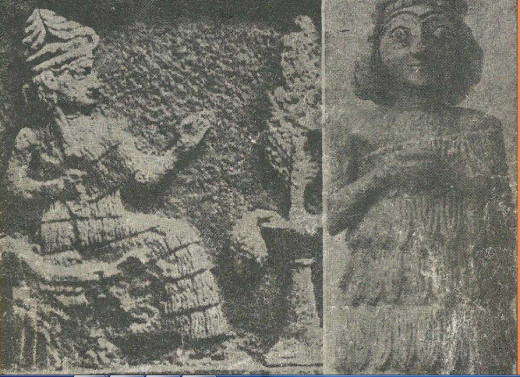
Comparison Between The Epic And Genesis' Account
The mythological work call 'the Epic of Gilgamesh' is a supposed story of the biblical flood. Since Archeologist speculate that the mythological king called Gilgamesh is the biblical Nimrod, and Nimrod as we know was an enemy of God, Should we keep on reading a myth that talks about God's enemy? One whom the bible described as "a hunter in opposition to God"?
Although according to one writer, who says that "With the possible exception of sections of the Bible and many of the dates that were ascribe to the various books that are speculative, at best this (the epic of Gilgamesh) would be the oldest piece of literature that many people have read".
Despite that, "the epic was discovered in 1853 and was first translated in 1870 which means that we have not had the actual story for very long" says the author. However its influences do stretch out over all recorded history, particularly with the similarities between the flood story here and the flood story in Genesis . Though as I mentioned previously it is my position that the flood story in Genesis supersedes this flood story, and this is one reason we must avoid this myth. Why?
The reason is because, there are many errors between the biblical account of the flood and the mythological story presented in this epic and which can confused honest people who may not remember that this is just a myth, thus creating doubt in their mind regarding the authenticity of the bible.
For example:
, consider the ark itself. The Bible describes a vessel about 437 feet long, with a length-to-height ratio of 10 to 1 and a length-to-width ratio of 6 to 1. (Genesis 6:15) Now, Noah was no shipbuilder. And remember, this was more than 4,000 years ago! Yet, the ark was built with proportions that were ideal for its function as a floating container. In fact, modern naval architects have found similar ratios suitable for structural integrity and stability on the open seas.
Although the Bible does not specify the exact length of time Noah spent building the ark, the account allows for construction that took 50 or 60 years. (Genesis 5:32; 7:6) These factors stand in stark contrast with the well-known story found in the Babylonian Epic of Gilgamesh. The epic describes a massive, ungainly cube some 200 feet [60 m] on each side that was built in only seven days. Unlike that Babylonian legend, the Bible’s Deluge account engenders confidence in its accuracy.
Another problem with this epic is that unlike the Bible or Homer we do not have a standard text. The date that was given to the poem is the earliest recorded date of tablets that have been found, however these tablets, and many of the other tablets that we have do not provide a standard telling of the story, and even by creating an outline of how we understand the story progresses, it is still incredibly corrupt and trying to piece the story together is a method of trial and error.
Some Similarities With The Bible's Account
The global flood occupies a prominent place in the histories of ancient nations. More than 100 separate Deluge stories from every part of the earth have been found, including the one in the Gilgamesh Epic.
In some details that ancient Mesopotamian Flood account resembles the one in the Holy Scriptures. For instance: Both sources relate that, with the exception of just a few survivors, the entire human race suffers destruction. One person is told to build a vessel for preservation. Waters pour down from the heavens day after day. Afterward, birds are sent out of the vessel to determine whether dry land has emerged. Upon leaving the preservation vessel, survivors offer sacrifice.
Do such resemblances constitute proof that the Gilgamesh Epic or earlier Mesopotamian Deluge legends take precedence over the Biblical record? Before answering that question, It will be helpful to isolate some of the differences too.
Differences With The Biblical Account Of Flood
First, as to the cause of the Deluge. According to the Gilgamesh Epic, an assembly of gods resolved to destroy mankind by means of a flood. Though that decision was to be kept secret, the god Ea (in the Sumerian account “Enki”) warned his favorite, Utnapishtim, about it.
The older Babylonian Atrahasis Epic states that one of the gods (Enlil) felt disturbed in his sleep due to noise made by humans. He turned for help to the divine assembly of “great gods” who then sent a famine for some six years, but without bringing the desired quietness. When the gods decided to send a flood, Ea disclosed the plan to Atrahasis, who built a survival vessel according to divinely given measurement.
The Biblical Flood account is altogether different. In it is stated a truly just cause for the Flood:
“The Lord saw that the badness of man was abundant in the earth and every inclination of the thoughts of his heart was only bad all the time. And the earth came to be ruined in the sight of the true God and the earth became filled with violence. So God saw the earth and, look! it was ruined, because all flesh had ruined its way on the earth. After that God said to Noah: ‘The end of all flesh has come before me, because the earth is full of violence as a result of them; and here I am bringing them to ruin together with the earth.’”—Gen. 6:5, 11-13.
As to perishing in the Flood or surviving it, the Bible relates that people died because they ‘took note’ of neither the work being done by Noah and his family on the ark for survival nor what Noah said as “a preacher of righteousness.” (Matt. 24:39; 2 Pet. 2:5) If they had heeded Noah’s warning words and example, they would have survived.
Too, in the Bible there is no command that Noah keep secret the fact that God was going to bring a global flood. However, the Mesopotamian legend indicates that the god Ea went so far as to suggest that Utnapishtim should deceive his contemporaries so as to keep them in the dark with regard to the coming catastrophe.
Important differences appear also with reference to the effect of the Flood. The Gilgamesh Epic relates that the gods became full of dismay and sought refuge in the highest heavens of the god Anu. Before entering, they “cowered like dogs,” crouched in distress and pressed to the wall. With weeping they raised voices of protest. Especially the goddess Ishtar reproached herself bitterly for originally consenting in the council of gods to mankind’s destruction.
And there are yet further differences. The Epic reports that, following the Flood, when Utnapishtim was about to offer sacrifice, “the gods crowded like flies about the sacrificer.” Ishtar, “the great goddess,” desired to exclude Enlil from the sacrifice and reproached him for having caused the calamity. The Mesopotamian account depicts Enlil as being enraged that one of the human race had survived

The Story Of The Epic And It Bad Influences
Gilgamesh was the king of Uruk, like any human kings today, who normally misuses their power, this Mythological king Gilgamesh is said to have misused his kingly power to encompass all women in the city. Worst yet, he do this both to married women whom he will never let their husband come near till he had finished sleeping with the women. Is that not barbaric to read?
And as we know, this story is from Mesopotamia under the ancient Babylon. Babylonian kings are well known for their tyranny and they do not let their victims go. The Babel that Nimrod started to build before God confused their language later evolved and became the capital of Babylon, from where the story of Gilgamesh came from. Is that not evident that the chief enemy of God, Satan is trying to use such-like mythological stories to water down the bible pure inspired message?
and the fact that Gilgamesh was described as two-thirds god appeared to make him even more authoritarian. I actually believe that there is a biblical reference to Gilgamesh in Genesis, namely a character known as Nimrod, who was a mighty hunter before the lord, and ironically appears to have had a number of cities attributed to him which are similar to the cities that Gilgamesh was said to have established. This story could actually be a Satanic propaganda to build doubt about the bible story.
According to one review, "the people of Uruk cry out to the gods to deal with Gilgamesh's actions, so they create a wild man named Enkidu. However Enkidu proves to be quite difficult in that it appears that he is roaming the land destroying civilisation, so they send a prostitute to him to teach him about sex. After seven days of passionate love making, Enkidu is broken of his wild ways".
So can anyone learn any useful thing by reading this mythological story?
This story has some interesting aspects to it in the nature of civilisation verses the wild. The people of Uruk represent civilisation while Enkidu represents the uncivilised man, and it appears that even as far back as then the constant conflict between civilisation and barbarity was in full swing. Even though Enkidu is only one man, it appears that he could be a representation of uncivilized tribal cultures and bandits who have no respect for the hard work of honest men.
However, could this story be of any benefit to any one reading it? I don't think so. Not to forget is that the mention of a prostitute and sex could reminds us of the biblical story about the Angels called "sons of God" in the bible, who came down, materialized and married women on earth. This Gilgamesh story talks about sex and prostitution as if it is no sin, why then should anyone be too interested in reading this myth?
The Myth goes on to relate that "Enkidu and Gilgamesh become friends after Enkidu confronts the king on one of his nightly escapades. One wonders if this is reflective of a homosexual relationship". Could this be the origin of homosexuality rampant in the world today and is being legalized as normal by many government today? Not to be forgotten is that from Babylon spread many teachings and practices we see in modern societies today.
The story farther says that "Gilgamesh and his companion went on adventures together, the trek to Lebanon to defeat the ogre Humbaba, and then the fight against Ishtar's bull that is sent to destroy the city of Uruk". And this reminds us of another bad influence that such myth has had on religion and culture. Mentioned in this story is a god called ISHTAR, this same god is the bases for celebrations that have infiltrated into Christianity and is called the 'ester celebration'. Can you see the bad influence this kind of myth can have on us? Why then should anyone worry reading this?
Gilgamesh Quest For Immortal Soul, In Harmony With Bible's Teachings?
According to one writer, "The main part of the text though deals with Gilgamesh's quest for immortality and his failure to find it. He is part god, but his human nature means that he must die like every other human. Enkidu dies of a wasting disease and this sends Gilgamesh into a long period of mourning, however he does not seek immortality to bring Enkidu back, but rather to stop himself from dying. It is not the loss of a loved one that drives him, but his fear of death, and this fear of death is something that is prevalent in literature throughout recorded history".
However, does the bible teaches that God made humans immortal? No. This story reminds us of the bad influence it has had on religion. Almost all major religion of the world today believes that human has a soul that do not die at death but lives on in spirit realm. Is it of any doubt that this idea has descended from the ancient mythological stories from Babylon? It is an evident that the chief enemy of God, Satan has used such-like stories to contradict the word of God.
The story father said that "Gilgamesh then goes on a long journey to find Umpashtim, the sole survivor of the flood, and also the last human to be gifted with immortality, however while Gilgamesh learns the secret, he does not gain immortality".
Now according to the bible, only eight people survived the flood, and they are all mortal humans with no immortal souls, how comes then the myth teaches that Gilgamesh learn the secrete of immortal soul?
Finally, at the end of the story, Gilgamesh sees the flower that will make him young again, and thus give him immortality, and it is within his reach, only to have it taken away from him by a serpent (which I read as a dragon). Here is another biblical parallel, as in this epic, but is turned upside-down here.
In the biblical account, Satan deceived Eve by promising her immortality. Satan said to Eve that 'she will become like God' and as we know, God is a spirit, God is immortal, God do not die. So in other word, when Satan said to Eve that she will "become like God" he was promising her immortality. Satan used the serpent to deceived Eve, and in this story too we see the mention of serpent.
However, the story make it seem yet as if God originally made humans with immortal spirit or soul, of which the serpent took away. However, God made human mortal from the start and never promised them any immortal soul or spirit.
According to one author, who says that the story of Gilgamesh "was probably a popular and well known story to the Mesopotamians, in that it answers, or tries to answer, the question of 'why do we die".
However, instead of answering that question, it created many unsatisfactory speculations. is it not important then, for us to be careful while reading this mythological stories, which can erode our mind and knowledge of God's word the bible?

